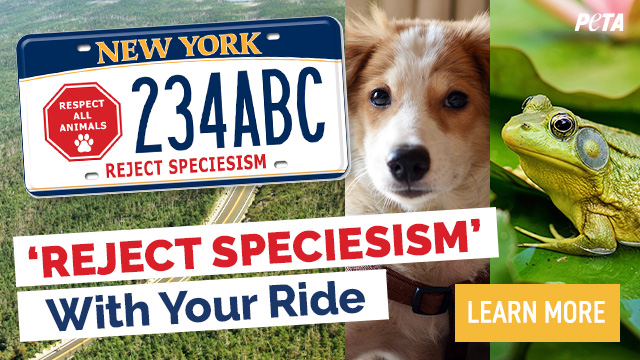JULIE CASTLE
CEO, BEST FRIENDS ANIMAL SOCIETY
A Personal Look At The Best CEO In Animal Rescue and Advocacy
Animal rescue and advocacy is one of the single most rewarding, and spiritually satisfying endeavors in the world. When you save a life, the serotonin that releases into your blood stream can cause a euphoria that can only be akin to a narcotic. Thankfully it is neither illegal, nor can it kill you. But it does have its dark side. Rescue can also be emotionally challenging and a difficult path to walk in life. From abuse to torture to abandonment, animal rescue can leave you psychologically scarred forever. The types of behavior, and the horrifying events, that you bear witness to can lead to everything from Post-Traumatic Stress Disorder (PTSD) to severe depression. So, it takes a certain type of human to be able to endure, and overcome, these types of traumatic experiences. It also takes an old soul...a compassionate one...to address these kinds of situations. That type of human is Julie Castle, the CEO of Best Friends Animal Society.
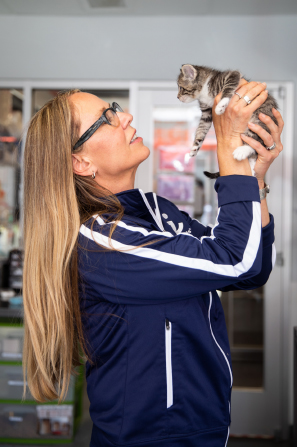
I recently had a chance to sit down with Julie and talk about her journey to becoming CEO and what, from her own perspective, led her to become the veritable Queen of Rescue, for lack of a better phrase. Please bear in mind, and in the interest of full disclosure, I have known Julie Castle for a long time. I have worked with her and the Best Friends Animal Society team over my many years in rescue and advocacy. My wife, our first dog Snickers, and I even did the very first Best Friends Animal Society “Strut Your Mutt” fundraising walk in Manhattan when we started our Rock & Rawhide animal advocacy. So, yes, I do have a slight personal bias here in that I have nothing but love and respect for this rescue maverick. But that didn’t preclude me from asking the tough questions.
Often, folks in rescue are inspired by a childhood experience. Growing up, did you have a lot of animals or pets around you?
“As a kid we had a lot of different animals. In your formative years, you always have that one really special pet. And mine happened to be a Brittany Spaniel named Sam. Sam was not your typical Brittany Spaniel. He was super chill. But I loved this dog more than anything in the world. We would go hiking together. We were outside together all of the time,” said Julie. In Castle’s case, Sam would later inspire her to want to do more to help animals in need. But it wasn’t until recently that the CEO realized just how much Sam meant to her, “It’s funny, I was having dinner with one of the founders of Best Friends and we were talking about our good friend, Emmylou Harris, who has her own rescue. We were listening to one of her songs and it reminded me that all little girls who grow up with a dog, that is their best friend. And that for me was Sam.”
Knowing that she was thinking about her beloved Brittany Spaniel, Sam, and that Castle had recently lost some furrever friends of her own, I had to broach the topic of the passing of a pet. Especially as Julie knew I had recently lost two of my own to cancer in the last couple of years.
With the memory of Sam passing, and your recent losses with respect to furrever friends, what do you think of how we address the loss and mourning of a pet?
Essentially, Julie Castle approached my question the way I had prayed she would...with her usual compassionate and thoughtful way,“There really is a special bond that you create with animals, that are created between sentient beings. It’s a hard loss to get over. What I tell people is to give yourself time to grieve. I mean 20 years or so ago, if you lost a beloved pet, mainstream America was like, meh, get over it. I think more and more people are recognizing that pets are part of the family now. So, it isn’t ‘just get over it’ now,” said Castle. “There is a deeper connection here (than with a human passing) that is really really special.”
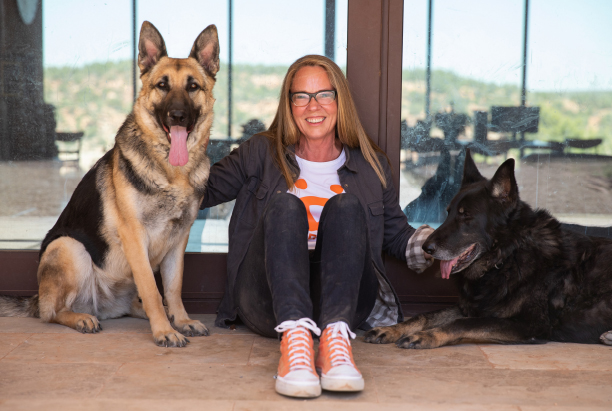
No one should be surprised that Julie is so passionate about animals, let alone saying goodbye to them. I, personally, have been through the bereavement process more times than I care to count, so I know Julie has endured much more. But I wanted to know what drove this intrepid woman to later spearhead the no-kill nation by 2025 movement.
What would you say, besides your love of Sam, is the moment that you were bitten by the rescue bug? What has kept you going these last 27 years in rescue?
“It really started before I arrived at Best Friends. I was in college and didn’t have animals with me at that time. We weren’t allowed to have pets in our apartment. So, I thought I could go to the local animal shelter and sneak in some cats, which I did. I went down to the local shelter which was near the dump. It was a cinderblock building with a tin roof. I walked into the shelter. There was a guy with cowboy boots and a cowboy hat on sitting with his legs up, reading the paper. I looked around and there were no animals. I asked him, ‘Where are all of the animals?’ He said he took care of them. I asked him, ‘What does that mean?’ He went on to describe that every morning he took all the animals, put them in a barrel and hooked up his Chevy truck exhaust to this barrel. And that’s how they were disposing of animals at this little shelter. And he said, ‘But hey I’ve got a couple of kittens under my desk. You are welcome to have them.’ So, I got down on my hands and knees and scooped up these two little kittens.”
As Julie was answering this question, you could see the emotional rollercoaster in her heart as she, at moments, had to pause to hold back the gamut of emotions ranging from happy to sad to frustration. “I remember thinking, ‘What is this? What are we doing?’ I was just 19 and just thought this is ridiculous. First of all, we domesticated these animals. And this is how we are relating to them? To kill them all in this way?”
The fact that after 27 years in rescue, Julie Castle is still at the top of her game should also come as no surprise. After all, like many members of Generation X, Castle started in the proverbial mail room at Best Friends Animal Society, rising to become CEO.
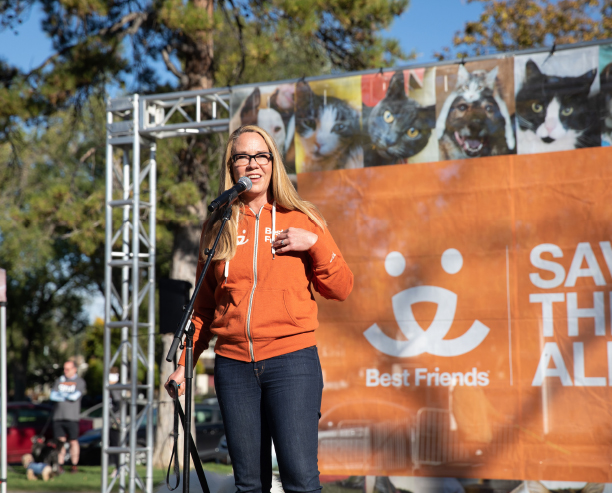
Like many of our fellow GenXers, you started out as the low woman on the totem pole, working your way up the ranks at Best Friends to become CEO. How did that start?
“I was on my way to the University of Virginia School of Law. I decided to go with some friends to Mexico because we knew it was the last opportunity for vacation we had before real life started. So, we hopped in my 1979 Dodge Colt which had different color panels around the entire thing because I had so many accidents. We drove down to Puerto Vallarta and stayed there until, one morning we woke up and realized that we had just enough money for gas to make the long drive home and one candy bar each. We were 1,800 miles from home, so we decided to drive straight through as we didn’t have any money to sleep anywhere. One of the friends we were with begged us to stop at this animal sanctuary in Southern Utah. I was like there is no way we are stopping. And she was so insistent that we all finally just gave in. When we got there, I pulled into this magnificent canyon in Southern Utah with these sheer red rock cliffs...just an absolutely incredible spiritual experience. And I took a tour with one of the founders. Visited all of the animal areas. Started to talk to them about their philosophy and I was just like, ‘This is what I want to do. This is incredible.’You go from this cinderblock building that is basically this killing machine to this place that is thinking about this problem in a totally different way, and it just made total sense to me.
It was clear that Julie Castle had found her path. She knew exactly what she wanted to do and why.
"We pulled out of the sanctuary and stopped at this gas station. I put a couple of quarters in the pay phone. I called my Dad and said I am not going to UVA. I am going to move to Southern Utah and work at an animal sanctuary. He was pissed and honestly don’t think he ever got over that. He didn’t live long enough to see where the thing went. And that’s okay. I can remember I showed up to Best Friends. I didn’t have enough money to rent an apartment, so I lived in my van. And showered at the local gym. My first paycheck was $183, and I can just remember it was so fulfilling. It was that Mark Twain quote, ‘The two most important dates in your life are the day you are born and the day you discover what you are supposed to do.’ And that was that. I have been here ever since.” (For reference, the full Mark Twain quote is: “The two most important days in your life are the day you are born and the day you find out why.”)
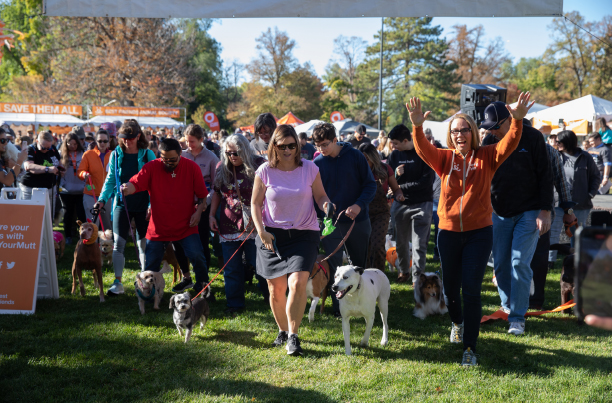
When you think about the early days at Best Friends, and the time you have spent helping animals,
what were those days like?
“I have legitimately done almost every job in the organization. In the early days, it was so much fun because it was truly a DIY situation. As an example, one day I was asked to install an irrigation system. I had no idea how to do this. So, I went to the local hardware store and asked them what I needed to learn to do this. Of course, they told me, and I just went out and did it. I learned a lot about a lot of different things and a lot about myself.”
As the Best Friends Animal Society website states, Julie Castle was literally doing everything, including cleaning the kitchen sink, across her MANY roles and responsibilities at Best Friends Animal Society: Julie did whatever job or chore was needed to keep the organization running, including animal care, landscaping, off-site adoptions, answering the phones, taking visitors on sanctuary tours in one of several beat-up old cars and “tabling” in front of grocery stores for donations.
As the organization grew, in 2000, Julie led No More Homeless Pets in Utah, a statewide no-kill coalition led by Best Friends that comprised more than 160 rescue organizations, animal control agencies and veterinarians. During her six-year tenure, Utah achieved a 50 percent reduction in shelter deaths statewide.
In 2007, Julie was tapped to lead Best Friends’ community programs and services division, re-envisioning a Best Friends-led network of shelters and rescue groups into a mission-oriented collaboration now known as the Best Friends Network, which boasts thousands of partner organizations nationwide. Identifying the primary reasons for animals entering shelters, she established Best Friends core initiatives to address three areas of focus: pit bull terriers, community cats (otherwise known as feral cats), and puppy mills and pet stores. In so doing, she led the organizational move to narrow Best Friends’ work into these highly focused and effective c hannels of a ctivity, including spearheading the development of the organization’s first legislative team. The work stemming from that decision has changed the national landscape in terms of the pet trade, pit bull legislation and community cat programming.
In 2011, Julie was asked to lead Best Friends’ marketing and communications divisions. She streamlined Best Friends’ messaging to a single call-to-action campaign, Save Them All, which has doubled Best Friends Animal Society’s brand awareness. During her tenure, Best Friends earned the Harris Poll Brand of the Year four times.
In 2014, Julie took on leadership of the organization’s fundraising efforts. Under one combined division, the communications, marketing and development teams were able to flourish, with the result that in four years, fundraising grew from $70 million to $114 million, and membership grew by 30 percent. In 2016, Julie put a stake in the ground on behalf of Best Friends to take the entire country to no-kill by 2025.
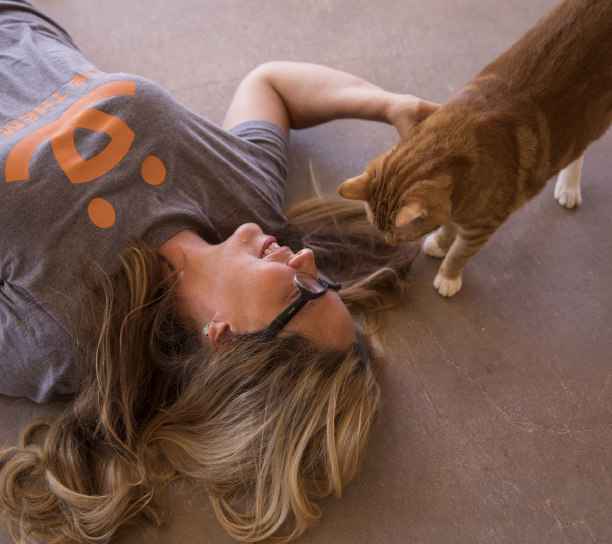
We all know your no-kill nation target by 2025. A big part of what is happening is tied to Breed Specific Legislation laws. As an example, Best Friends just helped overturn one of the worst laws on record in Miami wherein residents are now allowed to have Pitbulls. Yet you seemed more passionate than most in our space about this issue. Is there a reason why?
“I am not one who is going to write stuff off. For me, Miami was about putting it in a box and letting it simmer because things were so bad. Between the coalition down there and our legislative team who are so smart, to really find this loophole to get through the BSL situation in Miami was really remarkable. The thing that is stunning to me is that we are in 2023 and have been through massive changes since Covid. And to think that we have discriminatory practices toward people and pets because of the way an animal looks. It’s most of these dogs with the big block heads that all get categorized into one breed. And if you believe them, these animals are all bad, they’re all vicious. We know that’s not true. They have their own personalities, their own DNA, just like humans. The fact that society is still upholding this is so bizarre to me. It’s one of those things where the number of deaths from that one ordinance, countless deaths...thousands and thousands of these dogs have lost their lives to this stupid piece of legislation. It was a monumental moment for us. And not for just that breed...but for animals everywhere.”
If there is one key takeaway from this interview, it is that Julie Castle firmly believes in everything Best Friends Animal Society is and does, “At the end of the day, what this place embodies is just true grit. It is about the impossible becoming possible.” Quite frankly, even as much as I know Julie, after this interview, these are the ways I can describe Julie Castle, the CEO of Best Friends Animal Society: Maverick. Brilliant. Humane. Compassionate Leader. Modest.







